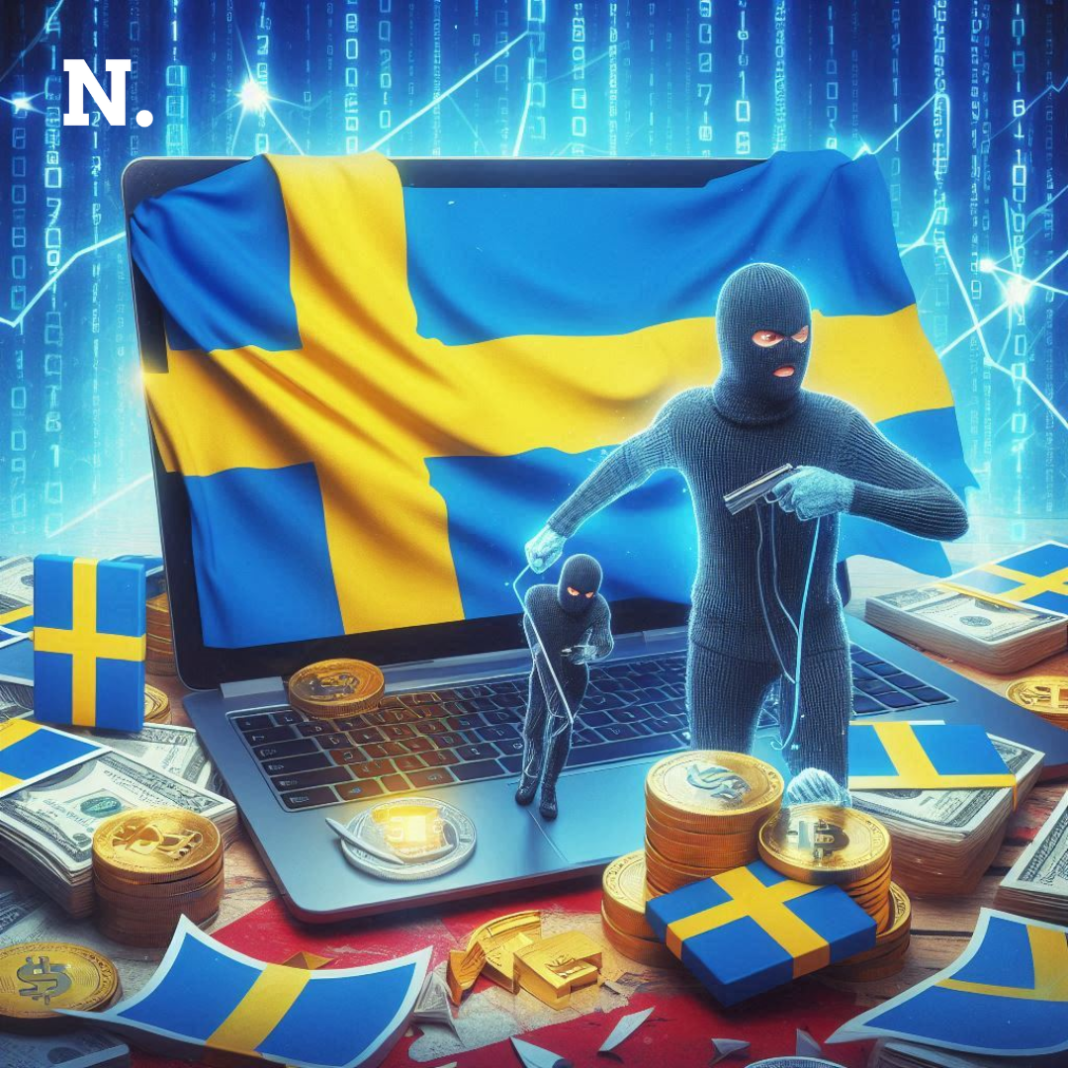When Ellen Bagley made her first cashless sale on a well-known app for used clothes, she was ecstatic. When the 20-year-old from Linkoping, Sweden, learned she had been stolen, her delight swiftly gave way to shock. Bagley got a direct message on the site requesting that she confirm personal information in order to finalize the transaction. Almost all Swedish adults use BankID, a digital authorization system, which she enabled by clicking the link.
Bagley realized something wasn’t right after seeing many error signals, but it was too late. Her account had been emptied of almost 10,000 SEK, and the criminals had disappeared into the digital obscurity. Fraudsters are quite good at making things appear real, according to Bagley.
Sweden’s Cashless Revolution and Consequences
Sweden serves as an important test case for fighting cashless crime. It has moved further away from paper money than almost any other European country. Online fraud and digital crime in Sweden have surged. Criminals took SEK 1.2 billion in 2023 through scams like the one Bagley experienced. This amount doubled from 2021. Law enforcement agencies estimate that Sweden’s criminal economy could be as high as 2.5% of the country’s GDP.
Swedish authorities have put pressure on banks to strengthen security measures in order to deter tech-savvy thieves and combat the surge in digital crime. This is a careful balancing act, though. Excessive intervention may cause the economy to contract, but insufficient action undermines confidence and harms respectable companies.
The Rise of Digital Crime due to Cashless Revolution
Skilled con artists have forged documents and created intricate networks of fictitious businesses to take advantage of Sweden’s welfare system. Senior economic crime prosecutor Daniel Larson compared Sweden to a “Silicon Valley for criminal entrepreneurship.” Although the spike in gun violence has drawn public attention, Larson stressed that economic crime is the real problem behind much gang activity and must be vigorously addressed. He pointed out that criminality for financial gain frequently results in confrontations and feeds organized crime.
Following a spike in armed robberies in the 1990s, Sweden started the transition to electronic currency. In 2022, a study conducted by the central bank revealed that under 8% of Swedes had made a recent transaction with cash. According to the International Monetary Fund, Sweden has the fewest ATMs per person in Europe, along with neighboring Norway.
The Role of BankID in Sweden’s Vulnerability
The fact that BankID is so widely used contributes significantly to Sweden’s susceptibility to online fraud. Once authorized, the technology acts like an online signature, completing transactions instantly and irrevocably. The banks in Sweden created BankID to facilitate electronic payments more quickly and easily than with cash. It was introduced in 2001 and has since grown to be an essential aspect of Swedish daily life. Every adult Swede uses the service, which needs a six-digit number, a fingerprint, or a face scan for verification, more than twice a day on average. Uses of the service range from paying for bus tickets to completing tax returns.
A group of the nation’s private lenders, comprising Swedbank, SEB, and Svenska Handelsbanken, controls BankID. Many improvements have been made to security, and the government is looking at the possibility of providing a digital ID that is issued by the state. The head of group fraud protection at Swedbank, Bjorn Johansson, said that the banking industry is working hard to combat scammers. But he also said that the government, the telecom sector, and the police have to pitch in as well.
The Downside of BankID’s Ubiquity
For Bagley, the commonality of BankID contributes to the problem. She noted that it ends up not being a security measure but just another step in using a website, leading users not to think twice about what the BankID app might be authorizing. This issue is not limited to consumer scams. Government agencies have adopted BankID to facilitate the setup of legitimate businesses in Sweden, inadvertently enabling fraudsters to create fake companies and phony payrolls to launder money.
Tackling the Issue in Cashless Revolution
To address the surge in digital crime, Swedish authorities are working on several fronts. They have increased pressure on banks to enhance security measures and are exploring the introduction of a state-issued digital ID to provide a more secure alternative to BankID. These measures aim to create a balance between maintaining economic efficiency and ensuring robust security to protect consumers and businesses from fraud.
Conclusion
Sweden’s transition to a cashless society has brought significant benefits. However, it has also introduced new security challenges, such as increased online scams and digital crime. As Sweden continues to innovate in financial technology, it must develop effective strategies to combat these emerging threats. Coordinated efforts from banks, law enforcement, government agencies, and the technology sector are required. These efforts aim to protect the integrity of Sweden’s digital economy and maintain public trust.





